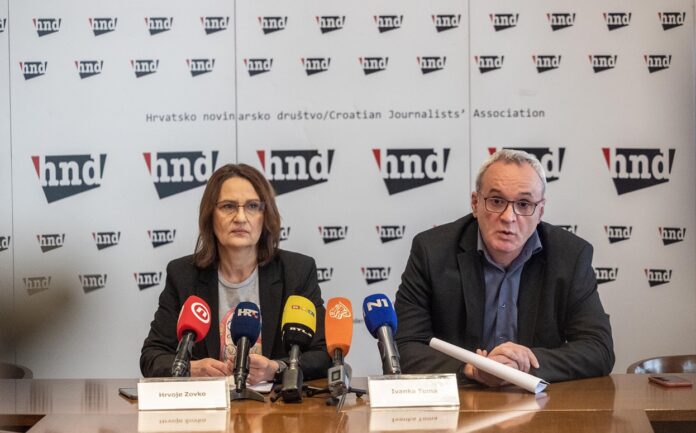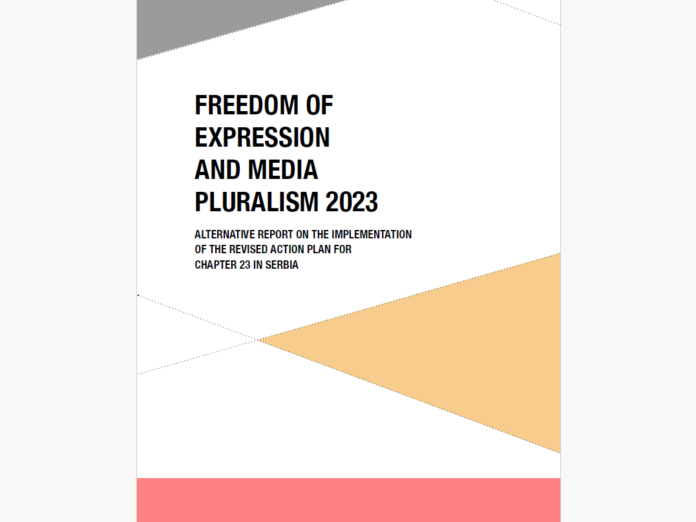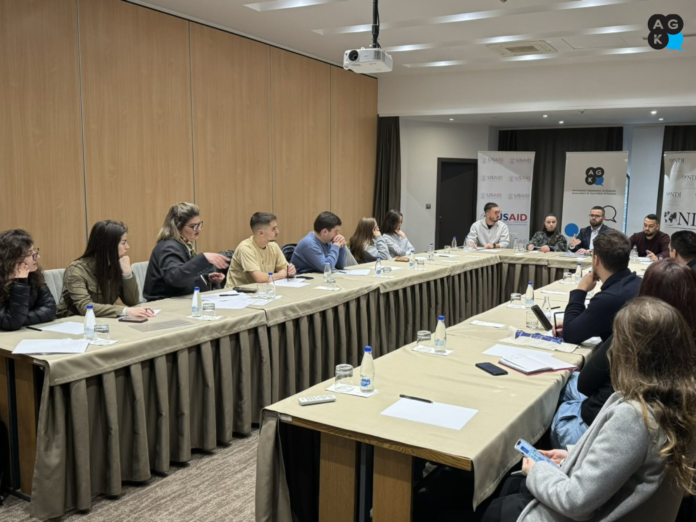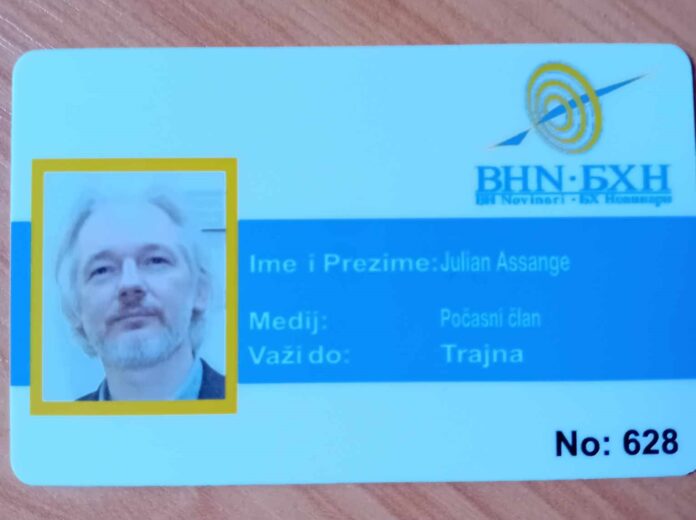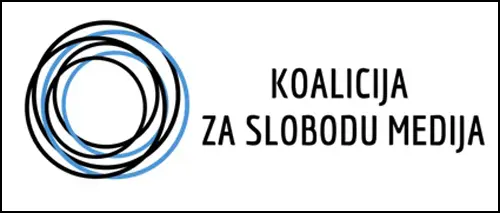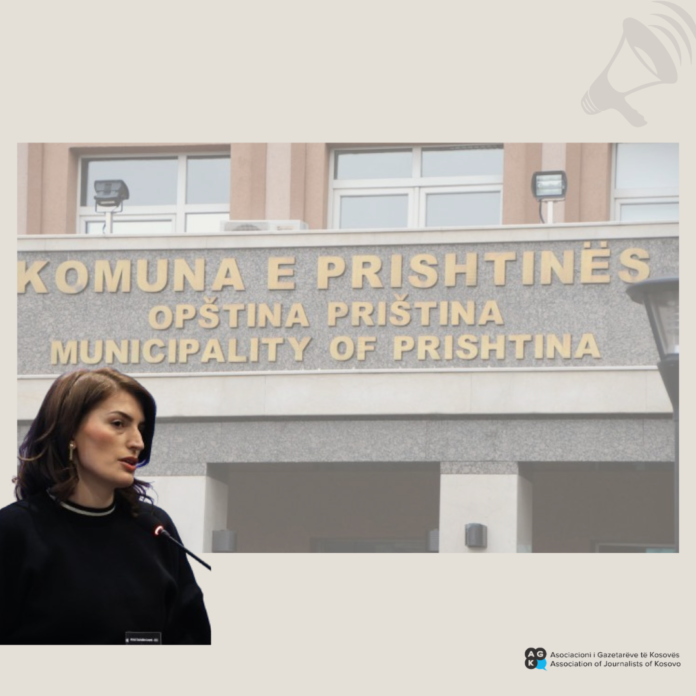The Croatian Journalists’ Association (CJA) continues its campaign against the “law of dangerous intentions,” also known as “Lex AP,” which we consider an attack on the journalistic profession and public interest, and we demand its withdrawal,” said Hrvoje Zovko, the president of the CJA, at a press conference where concerns were raised again about “Lex AP,” or the dangers of amendments to the Criminal Code proposed by Prime Minister Andrej Plenković’s government.
Zovko also stated that the CJA does not agree to any changes to that law, deeming them “cheap political tricks,” and reiterated that the journalists’ professional association presented its demands at a protest two weeks ago, from which they will not back down.
The president of the CJA also condemned Prime Minister Plenković’s statements attacking the media that published messages between the new Chief State Attorney Ivan Turudić and former state secretary Josipa Rimac (formerly Pleslić).
“Mr. Plenković has once again expressed his ambition to be the chief editor of all Croatian media. After everything that has been published, it is now clear why Ivan Turudić was so fiercely advocating for the original version of ‘Lex AP’,” said Zovko.
He also questioned, “if the prime minister already believes that we have not learned anything relevant from what was published,” why is he so “angry” about the publication of this data and “accuses the media of corruption.” He also stated that if that law passes in the Parliament, the CJA will launch a campaign and call on all journalists to continue publishing information in the public interest. He also expressed his horror at the fact that they did not receive guarantees from the authorities and that laptops and mobile phones could still be confiscated from journalists, their content searched, and criminal proceedings initiated against journalists.
“The CJA will use all legal means; we will not wait for such a procedure to be concluded finally but will seek an opportunity to stop the process at the very beginning and review such a legal provision before the EU Court of Justice in Luxembourg,” Zovko said. He also stated that “Lex AP is a shot at the public interest,” and that all those who vote for it will be considered by the CJA “responsible for the state’s aggression against public interest and the journalistic profession,” concluding that if they “want to arrest us (journalists) in 2024 – they can go ahead, and we’ll see how the whole thing ends.”
Toma: Journalists Already Feel the Consequences of “Lex AP”
CJA member and journalist at Jutarnji list, Ivanka Toma, raised a number of specific objections to the already amended proposal “Lex AP” and the issue of the responsibility of journalists and their sources in disclosing information from investigations.
“What is a fact is that the law, which is only between two readings and is far from being enacted, already has its consequences that I feel in everyday work because it has started to happen to me that people say: no, let’s not talk about it on the phone, maybe we’ll talk about it some other time when we see each other. So, there is already a noticeable reluctance, already there is fear,” said Toma.
Toma also added that it is evident that the government does not want to give up on this law.
“Between the two readings, they came up with adding another provision stating that there will be no criminal offense if the disclosure of information from investigations is in the interest of the victim, in the interest of defense in criminal proceedings, or in some other predominantly public interest. However, this is just smoke and absolutely changes nothing,” Toma concluded.
In the following, we present a detailed analysis and specific objections by Ivanka Toma regarding the Violation of Secrecy of Proceedings Article 307 and the negative consequences of Lex AP, as well as all the pitfalls and dangers it poses for journalists, journalism, sources, and ultimately the public.
Violation of Secrecy of Proceedings
Article 307.
(1) Whoever unlawfully discloses what they have learned in a previous criminal proceeding, court proceeding, misdemeanor proceeding, administrative proceeding, proceeding before a notary public, or disciplinary proceeding, which is considered secret under the law or a decision based on the law,
shall be punished by imprisonment for up to three years.
(2) The punishment under paragraph 1 of this Article shall be imposed on anyone who, without the permission of the court, discloses the course of proceedings that are secret by law or have been declared secret by a court decision, or anyone who, without the permission of the court, discloses the course of criminal proceedings against a child, criminal proceedings for a criminal offense committed against a child, or proceedings deciding on the protection of the rights and interests of the child, or discloses a decision in that proceeding.
Article 307a
“Unauthorized Disclosure of Content of Investigative or Evidence-Collecting Action”
“A judicial official or public servant in a judicial body, police officer or official, defendant, lawyer, trainee lawyer, witness, expert, translator, or interpreter who, during a previous criminal proceeding that is considered non-public under the law, unlawfully discloses the content of an investigative or evidence-collecting action with the aim of making it publicly available, shall be punished by imprisonment for up to three years.”
(2) The commission, assistance, or instigation of the criminal offense under paragraph 1 of this Article cannot be committed by a person performing journalistic work.”
The promise was added that another paragraph will be included in the second reading stating that there will be no criminal offense if it is done in the interest of the victim, in the interest of defense in criminal proceedings, or in some other predominantly public interest.
If Lex AP were already in force, my colleagues Marin Dešković and Slavica Lukić, who published the content of the messages exchanged between the former mayor of Knin, state secretary, and former high-ranking HDZ member Josipa Pleslić (formerly Rimac), and the appointed Chief State Attorney Ivan Turudić, would have already been questioned several times as part of investigative interviews.
In the case files labeled “Conversations Rimac – Turudić, Unknown perpetrator,” lists of both colleagues’ phone numbers for the past six months would already be included, and perhaps a preliminary list of possible suspects who provided the content of the messages extracted from Josipa Rimac’s messages would have been compiled.
Colleagues would find it very difficult to perform their jobs because everyone would avoid them like the plague, fearing that any contact with them might attract attention and that they might be suspected of colluding with the media.
Although the insertion of public interest as a reason for excluding unlawfulness initially sounds like a retreat and a pseudo-guarantee to the media that they will not be subjected to repression for publishing information from investigations, it is not. Neither with this addition, nor with the previous one which explicitly excludes journalists as possible perpetrators, instigators, or accomplices in the act of unauthorized disclosure of the content of investigative or evidentiary actions, are journalists protected from persecution and repression.
We are already feeling the negative consequences of the law, even at a stage where not even half of the expected procedure has been completed.
Enough has already been said about Lex AP, so I will focus on the elements that will make the insertion of predominantly public interest a dead letter on paper, with journalists being the first target of repressive bodies.
1) Firstly, it should be known that for unauthorized disclosure of investigative or evidentiary actions, an investigation would be initiated ex officio. If such a law were already in force, on the same day that Jutarnji list published the content of the messages exchanged between the judge of the High Criminal Court Ivan Turudić and former state secretary Josipa Pleslić (formerly Rimac), the deputy municipal prosecutor in Zagreb would have opened a case file and ordered investigations.
2) In such an act, the purpose of the investigation is to identify the perpetrators of the criminal offense. In this particular case, the person who made the messages accessible to the journalists of Jutarnji would be sought.
3) The journalist who published the story would be the most concrete lead for investigators, and every prosecutor or police officer would start with the journalist.
4) As part of the investigative actions, the prosecutor, or the police officer if entrusted, can call the journalist for an informational interview, not just once, but as many times as they deem necessary. They can obtain lists of their phone contacts, call in colleagues, editors, etc.
5) The law determines the deadlines for completing the investigation, but not for investigative actions. This means that investigative actions can last until the statute of limitations for criminal prosecution expires. In this case, it would be 10 years from the commission of the offense. Hypothetically, if the law were already in force, the police could periodically call in and interrogate Jutarnji’s colleagues until 2034 to determine who provided them with the messages exchanged between Turudić and Rimac.
6) The Chief State Attorney could theoretically assess that the data from the investigation was published in the public interest and that the elements of a criminal offense were not fulfilled. However, this will not happen for several reasons:
- According to the State Attorney’s Office Act, these are matters of greater importance, and prosecutors are obliged to inform the higher state prosecutor’s office about them, meaning that the assessment of the existence or non-existence of public interest will be made in the office of the Chief State Attorney and his opinion will be passed down the hierarchical ladder to the prosecuting attorney in charge.
- Even if prosecutors were left to independently assess the existence of public interest in publishing information from the investigation, they would certainly not do so, but would initiate proceedings and leave such an assessment to the court. The point is that no prosecutor has ever encountered questions of public interest during their education and entire career, conducted a proportionality test, or even listened to a lecture on the subject.
7) Finally, if the court eventually, in the criminal proceedings, assesses that there was a public interest in publishing the information from the investigation, so much time will pass that such a court assessment will become irrelevant. Because what good is it if the court eventually says that there was a public interest in the correspondence between Turudić and Rimac, if that conclusion comes a year after the end of their mandate as Chief State Attorney?
8) Simply opening investigations to journalists, media, and ultimately the public, which has the right to be accurately and timely informed, causes irreparable damage. Every potential whistleblower who believes that the institutions are so infected that anomalies will only be corrected under public pressure will think twice before approaching a journalist if they know that the police and prosecutors will search their contacts and collaborators.



